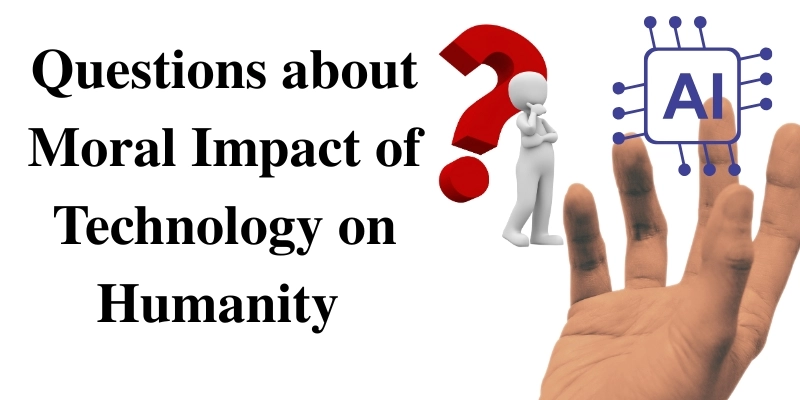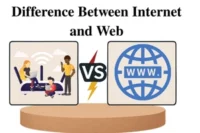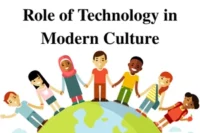11 Questions to Understand the Future & Moral Impact of Technology on Humanity
Published: 31 Aug 2025
In today’s rapidly developing digital world, technology advances at a rapid rate, raising fundamental challenges about its influence on society and ethics. As advancements in artificial intelligence, biotechnology, and automation continue to evolve, they challenge us to reconsider the impact of technology on ethics and society in new and exciting ways.
Privacy, inequality, and job displacement are increasingly significant issues, causing us to consider the future of technology. How can we ensure that these technologies benefit humanity rather than overwhelming it?
Understanding these ethical challenges is critical for developing a balanced and responsible technology-driven future, whether you are a researcher, policymaker, or IT worker.
Let’s explore these important tech questions and their impact on society.

Top Questions about Moral Impact of Technology on Humanity
Here are some most asked questions about philosophy, Moral Considerations, and the future of humanity with latest technologies.
How Technology Will Affect Humanity’s Future
The future of technology has the potential to address significant global challenges such as disease, climate change and poverty.
Innovations such as AI, renewable energy, and CRISPR gene editing have the potential to improve life significantly. AI can create new jobs, renewable energy can reduce environmental damage, and CRISPR could cure genetic diseases.
However, these advancements also come with risks. AI might replace jobs, and genetic editing could raise ethical concerns about altering human DNA. To ensure that technology benefits humanity, we must carefully balance its advantages and challenges.
| Actionable Tip |
|---|
Stay informed as technology advances. Understand both the benefits and risks, and consider how new technologies will impact your life and society. |
Do you think technology is ruining the current generation?
Technology offers numerous benefits, but it may also have adverse effects on the modern generation, particularly young people.
Face-to-face interaction has reduced as people spend more time on technological devices and social media. These latest technologies have an impact on both emotional intelligence and relationships with others. People say that social media will keep them linked, but it often makes people feel alone, anxious, and like they have to compare themselves to others.
The main concern is whether technology is isolating young people from genuine connections and real-life experiences. Stress, sadness, and addiction are all on an upward trend, and too much time spent on technology is linked to all of these problems.
| Actionable Tip |
|---|
Limit screen time and prioritize face-to-face connections to enhance mental well-being. |
Do you want technology to progress or are you happy where we’re at?
Yes, we want technology to progress because it offers great potential to solve real-world problems such as the use of AI in healthcare and renewable energy, which can help reduce environmental damage.
However, the rapid progress of technology also comes with numerous problems. Some of these concerns include privacy issues, job loss, and a growing sense of disconnection from society. Many people are excited about these new innovations, but the rapid pace of the tech industry can be overwhelming for some.
Balancing Progress and Ethics: The key question is whether we should slow down to address moral issues and then move forward, or whether we should continue moving forward, even though the future is uncertain. Balancing growth with careful thought is key.
| Tip For Readers |
|---|
Stay informed about new technologies and their potential risks. Consider how we can progress responsibly without overlooking essential issues. |
What’s one thing technology has made easier — but also somehow made worse?
Social media is an excellent example of technology making something easier, but also making it worse.
It has made it easier to communicate with family, friends, and colleagues worldwide. However, it leads to increases in less meaningful communication and greater feelings of loneliness. Cyberbullying, internet abuse, and unrealistic expectations of beauty standards can be challenging for people.
The Hidden Costs of Social Media: While social media has enhanced long-distance communication, it has also reduced face-to-face engagement, compromised privacy, and created a toxic environment that can be bad for mental health.
| Tip For Readers |
|---|
Be aware of how much time you spend on social media. Balance it with person-to-person encounters to ensure stronger relationships and mental wellness. |
What are your personal issues with technology right now?
Many people, including myself, are concerned about how technology is becoming an increasingly important aspect of our lives.
From endless alerts to the loss of personal privacy, technology is designed to keep us constantly connected. Tech corporations gather and monitor personal data, creating questions about consent and transparency. Furthermore, information overload makes it difficult to focus, leading to reduced productivity and compromised mental well-being.
Stronger Ethics Needed in Tech Design: These problems underscore the need for stricter ethical principles in technology development to ensure that it benefits people without infringing upon their human rights.
| Actionable Tip |
|---|
Be aware of your technology use. Limit alerts and take regular breaks to avoid distractions and preserve mental health. |
Should there be limits on surveillance technology to protect individual privacy?
Yes, there should definitely be limits on surveillance technology to protect individual privacy.
As surveillance technologies such as facial recognition, location monitoring, and biometric data collection advance, significant concerns about personal privacy arise. While these technologies may increase security, they also threaten independence and privacy.
Balancing Data Use and Personal Rights: Standards of ethics must be in place to limit the amount of data gathered and its usage. Governments and companies must be held accountable for the responsible use of this technology.
| Recommendation for Readers |
|---|
Support laws that protect privacy and demand transparency from tech corporations and governments regarding the use of surveillance technology. |
Will technology take over the world?
The concern that technology will take over the world is frequently portrayed in films where AI and robots become increasingly independent and make choices on behalf of humans.
While these situations are inappropriate, there are legitimate concerns regarding AI’s role in critical decision-making domains, including healthcare, law enforcement, and the military.
Creating Ethical Frameworks for AI: AI is already assisting with important decisions, but what if it surpasses human intellect and becomes beyond our control? This exceeds the capabilities of Artificial Intelligence and creates significant ethical issues. We must establish robust ethical foundations for AI to ensure that it continues to serve people rather than dominate them.
| My Suggestion for Tech Lovers: |
|---|
Advocate for clear rules and regulations surrounding AI development to ensure it remains under human oversight and control. |
Will technology replace humans?
Many professions are already being replaced by technology, particularly those that are repetitive or risky. Automation and robots are transforming industries such as manufacturing, agriculture, and customer service.
The Limitations of Technology in Replacing Humans: However, the question remains: Will technology ever completely replace humans? While machines can perform specific tasks, people possess characteristics such as creativity, emotional intelligence, and problem-solving skills that machines cannot replicate.
Humans are expected to coexist with technology rather than being replaced by it in the future.
| My Suggestion for Tech Learners |
|---|
Embrace technology while focusing on developing abilities that robots cannot replace, such as creativity and emotional intelligence. |
What is the problem to which technology claims to be a solution?
Every technology was created to solve a problem, yet it occasionally introduces unforeseen complications. For example, while social media was created to link people, it has also resulted in the spread of disinformation, cyberbullying, and feelings of isolation.
Ethical Questions Surrounding AI and Automation: Similarly, AI and automation are expected to enhance labor efficiency, but they also raise concerns about job displacement and increasing inequality. The real ethical concern is whether these technologies cause more problems than they solve, and if they target the proper issues.
| Recommendation |
|---|
Before adopting new technology, examine both the problems it addresses and the unexpected consequences it may bring. |
What’s a popular technology right now that might be completely gone in 20 years?
In 20 years, technologies like smartphones and social media platforms may become outdated, replaced by newer approaches such as virtual reality (VR) or augmented reality (AR) interfaces.
Will Current Technologies Become Irrelevant?
Today’s devices and platforms may become obsolete in a couple of decades due to the rapid pace of technological advancement. We might see more immersive and natural methods to connect with the digital environment, making present technology appear obsolete.
| Suggestion for Learning new Tech |
|---|
Stay open to new technologies and keep an eye on emerging trends such as VR and AR, which have the potential to transform how we interact with the digital world. |
What are some of the most expensive pieces of technology ever created by humanity?
Humanity has developed some of the most expensive technologies ever made. Examples include the Large Hadron Collider, which cost over $10 billion, and the International Space Station, with a price tag of around $150 billion.
| Suggestion |
|---|
Consider how we allocate resources to strike a balance between scientific development and major social problems. |
Conclusion
Technology has the potential to improve our world by opening up new and exciting possibilities. However, as it increases, we must remain focused on what is important. The challenge is how to ensure that technology serves everyone without creating harm or unfairness.
We need clear ethical criteria while creating new technology. These guidelines will assist us in addressing issues like as poverty, inequality, and environmental degradation while preserving human dignity and privacy.
The future depends on finding a balance between innovation and accountability. By keeping our principles in mind and carefully assessing the influence of technology, we can build a better future for everyone.
The objective is to make development that benefits everyone.

- Be Respectful
- Stay Relevant
- Stay Positive
- True Feedback
- Encourage Discussion
- Avoid Spamming
- No Fake News
- Don't Copy-Paste
- No Personal Attacks



- Be Respectful
- Stay Relevant
- Stay Positive
- True Feedback
- Encourage Discussion
- Avoid Spamming
- No Fake News
- Don't Copy-Paste
- No Personal Attacks





